Retail Mobility Solutions: Creating Seamless Shopping Experiences and Driving Retail Innovation
Shelf wars are won on speed and experience. While e-commerce grows, the vast majority of purchases still happen in-store, yet shoppers expect online levels of convenience, opting for mobile checkouts, live stock data, and help anywhere on the floor.
Retail mobility solutions empower sales associates to assist customers anywhere in the store, providing immediate support, product information, and help with transactions or inquiries. Chains juggling thousands of tablets, scanners, and kiosks cannot afford a single outage. Retail mobility solutions answer that pressure by keeping every endpoint online, secure, and visible in one console, and by connecting devices, systems, and networks for seamless operations. These solutions also support businesses in meeting the evolving needs of consumers, who demand convenience, personalization, and efficient service.
Introduction to Retail Mobility Solutions
Retail Mobility Solutions are comprehensive technology systems that use mobile hardware (like POS terminals, tablets, smartphones), software, and network connectivity within a retail environment. They aim to support and streamline various business processes, including:
- Sales and Checkout: Enabling faster, more flexible payment processing and reducing queue times.
- Inventory Management: Providing real-time stock visibility, tracking, and management.
- Customer Engagement: Empowering staff with tools for personalized service and instant information access.
- Operational Efficiency: Optimizing backend tasks, staff communication, and data analytics for better decision-making.
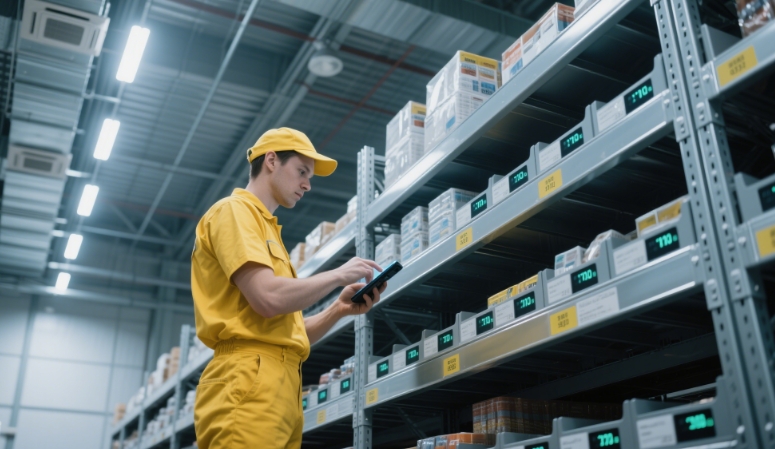
1Key features of Retail Mobility Solutions
Comprehensive retail mobility solutions typically include the following key features, enabling retail enterprises to leverage these technologies to enhance operations:
- 1. Real-Time Inventory Management
- Update stock counts instantly from any handheld for accurate real-time info. Manage out of stock items efficiently and check inventory at other locations, such as warehouses or other stores, to ensure customers can always find what they need.
- Auto-alerts flag low stock and trigger fast reorders, stopping “out-of-stock” signs before they happen.
- 2. Mobile Payment Processing
- Supports various payment methods such as credit cards and digital wallets (PayPal, Apple Pay, Google Pay) for faster, secure transactions. Mobile POS systems and modern POS systems form the backbone of this payment infrastructure, streamlining the point of sale experience. Customers can also receive text receipts instantly, improving convenience and service.
- 3. Personalised Marketing
- Capture browsing and purchase habits without breaking privacy rules. Use data from past purchases to tailor offers and promotions for each customer.
- Push offers that feel tailor-made, boosting basket size and loyalty.
- 4. In-Store Customer Tracking
- Use beacons or Wi-Fi pings to map foot traffic in real time.
- Heat-maps reveal hot spots, guiding smarter layouts and on-the-spot help.
- 5. Mobile Device Management (MDM) – one cloud console to rule every POS, scanner, and kiosk:
- Centralised enrolment & provisioning – add devices in bulk via zero-touch or QR code.
- Real-time dashboard & alerts – spot battery drains, data spikes, or policy drift the moment they appear.
- Remote control & troubleshooting – rescue a frozen checkout screen from HQ in seconds.
- App whitelisting & silent updates – lock hardware to approved apps and patch overnight.
- Content & policy scheduling – update prices or send training videos on a store-by-store timer.
- Role-based access & audit trails – granular permissions plus full logs for PCI-DSS peace of mind.
- Scalable cloud architecture – roll from ten shops to a thousand without new servers.
MDM solutions allow you to manage a wide range of devices and technologies, including smartphones, ensuring security and efficiency across your retail environment.
6. Data Integration & Analytics
- Merge in-store, online, and app data into a single pane, powering data-driven decisions across merchandising and ops.
- 7. Omnichannel Integration
- Seamlessly link every touchpoint—buy online/pick up in store, return anywhere, enjoy unified promos, or arrange delivery directly to the customer's home.
- 8. Employee Collaboration Tools
- Mobile task lists, chat, and knowledge bases keep staff synced in real time and customers helped faster. These tools improve productivity and help keep store operations running smoothly.
2Multi-Device Management: Simplifying Complexity and Enhancing Customer Experience
Pain point & mini case study
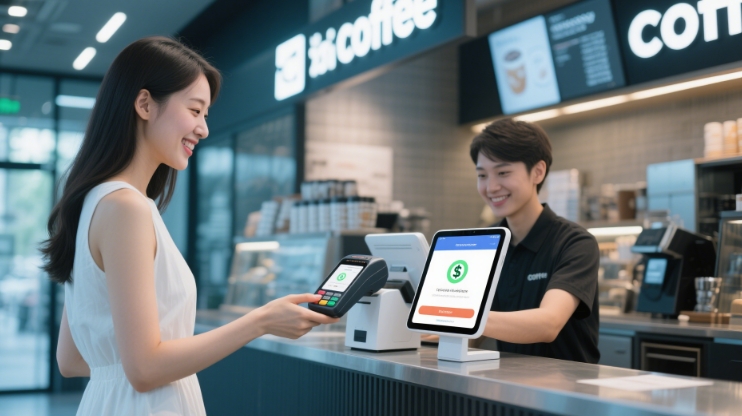
Picture The Corner Store, a neighbourhood shop that rolls out tablets so staff can ring up sales faster and track stock on the fly. At first it feels modern, but the honeymoon ends quickly. Each tablet comes from a different brand and runs a different operating system, so updates clash, apps refuse to open, and no one is sure which settings menu fixes what. Wi-Fi drops during Saturday rush, freezing every transaction just as the line snakes past the drinks cooler. Unpatched devices multiply quickly, turning data security into a round-the-clock worry. Repairs and remote-support calls pile up, and the mounting maintenance bill eats the very savings the tablets were meant to deliver, leaving customers and staff equally frustrated.
AirDroid Business: the fix
AirDroid Business puts an end to the chaos. With Device Enrollment, a single console brings every tablet and phone online under the correct profile. Monitor & Alerts then tracks uptime and battery levels in real time. When an application misbehaves or performance dips, IT can step in through Remote Access to adjust settings or guide the user on-screen. Application Management (the AMS feature) keeps versions and deployments under control so compatibility headaches never reach the sales floor. Policy profiles let IT push pre-configured Wi-Fi settings to every new store’s devices as soon as they’re enrolled. For security, Kiosk Mode pins each tablet to its essential apps and, together with broader Management and Security policies, shields unpatched systems, boosts device availability, and keeps shoppers satisfied.
AirDroid Business - Boost Retail Mobility
AirDroid Business provides powerful device management and robust security for retail mobile devices, ensuring smooth operations and enhancing the shopping experience.
Emerging retail mobile AI trends
1. Smart shelves that self-audit – Edge cameras with on-device AI track facings and alert staff when planogram compliance slips. Walmart’s shelf-scanning robots do the job three times faster and more accurately than manual audits. Axios
2. Predictive maintenance for POS fleets – Streaming sensor data (CPU temperature, NFC retries, battery cycles) into AI models lets retailers swap terminals before failure. Deloitte research shows predictive maintenance can cut downtime by up to 15 % and reduce costs by 18-25 %. com4.no
3. Conversational clienteling – Large-language-model apps running securely on staff phones surface real-time stock, cross-sell ideas, and care instructions in the shopper’s language. Zero-trust policies and encrypted tunnels keep purchase histories safe.
All three trends multiply always-on endpoints and the data they create. Without unified mobility management, AI pilots stall. Tools like AirDroid Business supply the telemetry—device health, network quality, update status—that AI modules rely on, ensuring efficiency gains land across every store.
All-in-One vs DIY Solutions
- Building your own stack can seem the cheaper route—particularly when needs look straightforward or the in-house team feels confident. You buy an MDM licence, script the enrolment workflow, bolt on a remote-support tool, whip up compliance checks, and keep a watchful eye on the servers. At first everything ticks along nicely. The hidden costs, however, creep in once the store count balloons or new features push beyond the DIY blueprint: version conflicts that refuse to cooperate, vendors blaming each other, patch windows that spill into the small hours, and engineers stuck monitoring dashboards instead of shaping strategy.
- An all-in-one platform flips that picture, especially for retailers eyeing long-term scale or juggling complex enterprise rules. It wraps MDM, remote control, app management, geofencing, analytics, and open APIs into a single service-level agreement. Upgrades roll out automatically in the cloud, integrations arrive pre-tested, and one support ticket reaches every team you need. The headline licence may cost more, yet faster roll-outs, steadier compliance, and the freedom to redeploy talent toward revenue-driving projects usually repay the premium many times over.
3Digital Signage: Transforming In-Store Engagement
Digital signage is a key retail mobility solution, enhancing in-store shopping experiences. It offers instant product details and personalized offers via mobile devices, boosting customer experience and sales. Retailers can dynamically promote products and services, update content across locations, and encourage impulse purchases. Interactive signage lets customers scan QR codes, browse inventory, or complete purchases directly from displays.
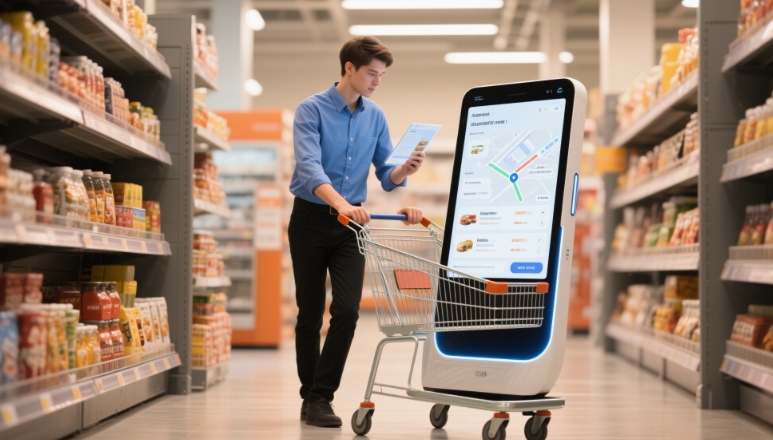
Digital signage also improves operational efficiency by reducing time customers spend waiting, empowering associates to focus on assisting customers. MDM (Mobile Device Management) solutions play a crucial role in managing and securing digital sinage. Integrating with other retail solutions creates a seamless omnichannel experience. Ultimately, digital signage helps retailers stay competitive, enhance in-store experiences, and drive growth.
4Safeguarding Customer Data in Mobile Retail Solutions
Mobile touchpoints bring insight and convenience, yet they also increase the risk of attacks on security. If attackers reach tracking logs or preference files, a shopper’s footprint can become public within minutes. Operating across borders adds complexity; rules such as GDPR or CCPA change from region to region, and a single compliance slip can invite fines, lawsuits, and the loss of customer trust.
Here is a playbook that protects data without stifling innovation:
● Practise data minimisation. Collect only the fields you truly need, declare the purpose up front, and set an expiry date for every data set. Fewer columns mean fewer headaches later.
● Build privacy into the design. Run security and compliance checks during development, not after launch, and refresh policies whenever the system evolves.
● Mask sensitive data and control access. Pseudonymise personal fields and restrict visibility by job role so no one browses raw customer data without authorisation.
● Earn consent and keep it current. Provide clear prompts and plain-language notices, and honour any request to review, change, or withdraw permission right away.
Follow these four principles and your mobile programme can delight shoppers while satisfying regulators and preserving your brand’s reputation.
Conclusion
Unified mobility is no longer optional retail plumbing—it is the nervous system connecting every shelf, associate, and shopper touchpoint. Deploying an all-in-one solution such as AirDroid Business secures devices, cuts downtime, and sets the stage for AI-driven growth. Ready to modernise? Start your free proof-of-concept today.









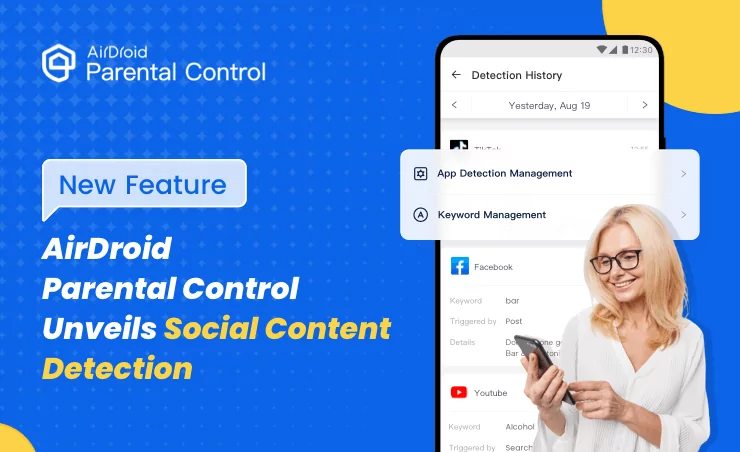
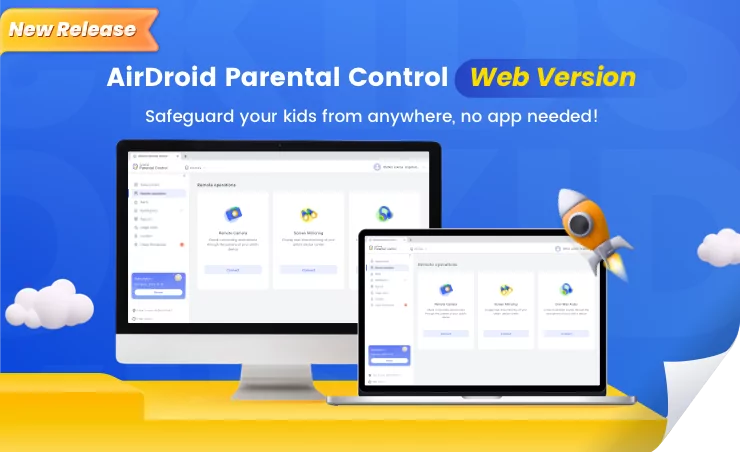

Leave a Reply.